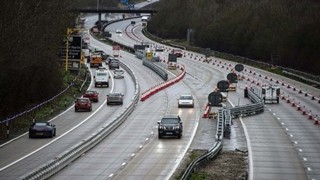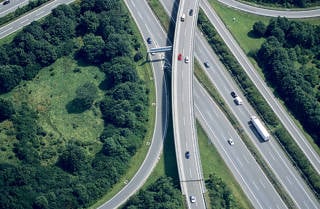Highways England has unveiled ambitious plans to reduce the number of people killed or seriously harmed on the country’s Strategic Road Network by 40% in the next five years.
The goal is a stepping stone in its longer term strategy to decrease to zero the number of people harmed on England’s motorways and major A-roads by 2040.
The new company replaced the Highways Agency in April, and manages and maintains 4,300 miles of arterial routes.
The Strategic Road Network accounts for only 2% of England’s roads, but it carries one-third of the nation’s traffic, and is used by four million drivers every day.
With a strong steer from the Government that no one should be harmed when travelling or working on the Strategic Road Network, Highways England has made safety its number one imperative, said Heather Lang, central on-road manager for Highways England, at ACFO’s autumn national seminar.
“Our aim by 2020 is to reduce killed and seriously injured by 40%,” she told delegates.
“That still means 1,393 people will be killed or seriously injured on the Strategic Road Network, and that’s 1,393 too many.”
Within the next couple of weeks, Highways England will publish its strategy to achieve this objective in a document called Driving Forward Safety.
“It’s going to be dealing with things like the worst bottlenecks; higher standard A-roads, where we’re looking at things like expressways; developing and deploying new technology to prevent and detect incidents; targeted safety improvements and upgrades to junctions,” said Lang.
This will include greater use of the hard shoulder as an active lane on motorways, after a successful trial project on the M42.
“The M42 evaluation showed that it was very effective in the sense that there were fewer incidents,” she said. “People were completing their journeys in a more predictable way, and even though their speeds may have been restricted they were actually making their journeys more effectively.”
She conceded, however, that such engineering solutions are unlikely to solve safety issues on roads completely, given the role that driver behaviour and human error play in causing collisions.
Consequently, road enhancement projects will be backed up by “developing targeted enforcement and educational interventions for a wide range of issues. For us it would be things like fatigue, mobile phone use, etcetera,” she added.
Lang cited Highways England figures that calculate the annual cost of accidents on the Strategic Road Network to be in excess of £1 billion, when measured in terms of human casualties, vehicle damage and congestion.
“We want to move from a reactive to a proactive strategy,” said Lang. “We would rather be investing in preventing accidents than dealing with the consequences of them.”
She added that Highways England is tasked with delivering £4 of benefit for every £1 of its current £7.7bn budget.
“We are seeing a lot of incidents that are causing a lot of congestion – some are on the hard shoulder but a lot are in live lanes where we have to offer immediate support and assistance,” she said.
“Tyre blow-outs and punctures are things that could easily lead to secondary incidents, and do have serious disruption to the smooth flow of traffic.
“Many of these are preventable, and we need to focus on preventable opportunities and think about how we work with industry over things like tyre safety, and even things like out of fuel or wrong fuel – maybe there are things we could do to manufacture that out.”
Highways England has a commitment to clear 85% of motorway incidents within an hour in order to minimise congestion, and Lang revealed further plans to help drivers, including an upgrade to the company’s website to improve journey planning around roadworks, and the launch of a hands-free traffic information app to help drivers plan routes while they are on the road.
The goal is a for a more free-flowing network. This means “being able to get where we want to go in a timely way and being able to plan our journey so from a fleet perspective you are able to schedule things in a confident way”, said Lang.





















Login to comment
Comments
No comments have been made yet.